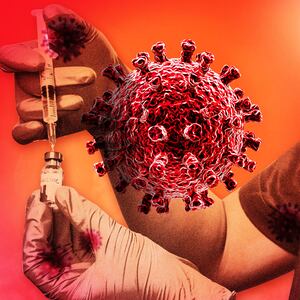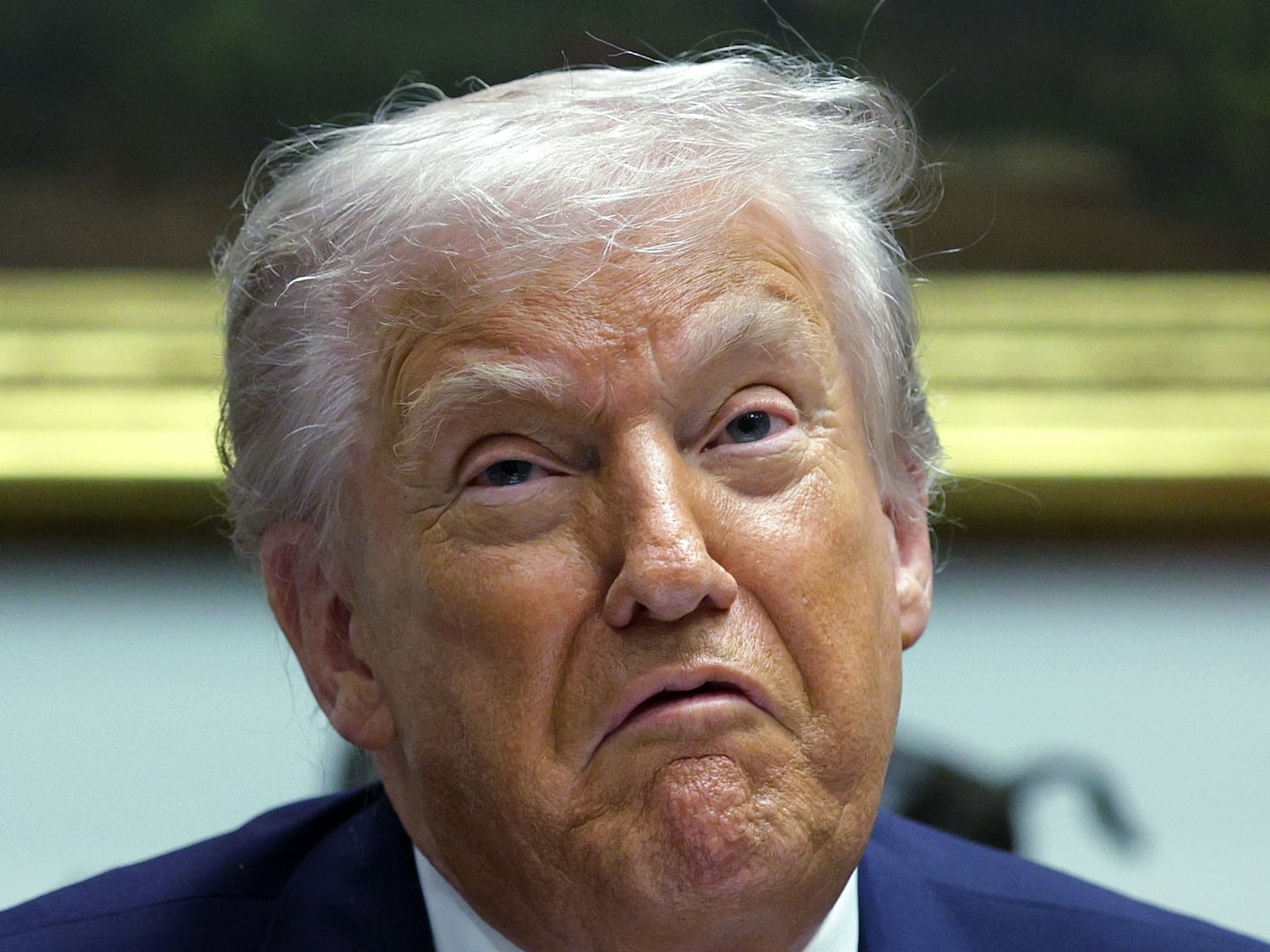When Pfizer announced its late-stage novel coronavirus vaccine candidate was 90 percent effective on Monday, stock markets soared, critics started taking shots on Twitter, and right-wing conspiracy theories about the timing of the announcement—less than 48 hours after Joe Biden claimed the presidency—quickly proliferated.
The public-health implications are massive. Pfizer expects to request emergency-use authorization from the U.S. Food and Drug Administration before the end of the month. If that happens, the company could begin shipping doses to front-line health workers and vulnerable populations such as nursing-home residents. Still, experts warned against prematurely declaring victory over the novel coronavirus given just how unproven the technology at play here is.
Welcome to Rabbit Hole, where we dive deep on the biggest story. It’s for Beast Inside members only. Join up today.
“We need to look more closely at the data,” Paul Offit, director of the Vaccine Education Center at the Children’s Hospital of Philadelphia, told The Daily Beast.
The SARS-CoV-2 pathogen has infected more than 50 million people worldwide since December and killed more than 1.2 million, including around 237,000 in the United States. Authorities reported more than 126,000 new cases across the United States on Friday—a new record. At the same time, authorities also reported more than 1,000 deaths for the fourth straight day.
The new wave of infections has only increased the sense of urgency among researchers, clinicians, and health authorities. Taken in tandem with Biden’s victory in the presidential race—widely seen as a win for science over COVID-19 trutherdom—the financial world was practically brimming with excitement at the news, and, in Pfizer’s case, self-congratulation.
“Today is a great day for science and humanity,” said Pfizer CEO Albert Bourla.
That same urgency contributed to a more measured sense of elation in the broader medical community following Pfizer’s announcement, which included the company’s own claim that there were minimal side effects observed in trial participants. “Excellent news,” Jeffrey Klausner, a professor of medicine and public health at UCLA who previously worked at the U.S. Centers for Disease Control and Prevention, told The Daily Beast.
If Pfizer’s luck holds, the company could begin distributing doses on an emergency basis before the end of the year while phase-three trials wrap up. Wider distribution to potentially hundreds of millions of Americans could follow throughout 2021.
Dr. Anthony Fauci, the top infectious-disease expert in the country, told STAT News that the data suggested the larger vaccine project—from a slew of companies—was on track, because, like, Pfizer’s, they generally are aimed at the spike protein that helps the pathogen wreak so much havoc on human cells. In other words, the larger pathway for inoculation seems to be validated here, regardless of which company is first across the finish line.
The problem is that early data from vaccine trials can be misleading, as it comes from only a small portion of the overall study group. “Potential consumers are going to want to know more about how the vaccine works and what kinds of side effects can result,” Jennifer Reich, a University of Colorado sociologist who studies immunization, told The Daily Beast. “Even as the company says there are not serious side effects, some reactions, including fevers and pain, will matter as individuals evaluate whether they want to get the vaccine.”
Even if the data stand up to scrutiny, it’s not clear how efficient Pfizer’s manufacturing processes are. And there are also lingering questions about the distribution network for the company’s vaccine.
Pfizer’s messenger-RNA vaccine works by introducing a genetically-engineered nanoparticle that encourages the human immune system to produce coronavirus-fighting antibodies.
Pfizer began enrolling around 44,000 people in large-scale, phase-three trials of its vaccine candidate back in July. The company decided to release preliminary results after 94 test subjects from a subset of volunteers came down with COVID. Analysis of the other people in the same group found that the vaccine prevented infection in more than 90 percent of cases.
“For a vaccine candidate, anything above 90 percent [effectiveness] is considered a sure winner,” Henry Wang, a chemical engineering professor who studies vaccine production at the University of Michigan, told The Daily Beast. A typical flu vaccine normally is no more than 60 percent effective, according to the CDC.
“Earlier reports we read indicated mRNA vaccines might be only about 50 percent to 70 percent effective, so it is exciting to see Pfizer’s mRNA vaccine could be 90 percent effective,” Cynthia Liu, a scientific information manager with Ohio-based CAS, a division of the American Chemical Society, told The Daily Beast.
Predictably, heads began to explode on the fringe right given the president’s failure to deliver a vaccine before the election, as he had long teased—a process experts feared he would rush. “Nothing nefarious about the timing of this at all right?” tweeted Donald Trump Jr., the son of lame-duck president Donald Trump.
President-elect Joe Biden said he was informed of the Pfizer vaccine development Sunday night, and wrote a statement of congratulations to “the brilliant women and men who helped produce this breakthrough and to give us such cause for hope.”
Pfizer spokesperson Sharon Castillo dismissed the notion that the election played any role in the company’s timing. “At Pfizer, we are moving at the speed of science and only science guides all our decisions regarding our vaccine candidate,” she said. “There are absolutely no political considerations.”
Still, the company quickly came under fire for painting itself as a completely independent operator, free of the government’s multi-billion-dollar vaccine project, Operation Warp Speed.
“We were never part of the Warp Speed. We have never taken any money from the U.S. government, or from anyone.” Kathryn Jansen, a senior vice-president head of vaccine research and development at Pfizer, told The New York Times.
While Pfizer was the only major drug company working on vaccine development to forego those funds, it undoubtedly benefited from the program in other ways.
One of the project’s most impactful policy moves was to dramatically speed up the pace of drug trials, allowing companies to proceed to subsequent trial phases on a far more ambitious timeline than would be permitted under normal FDA rules. The Trump administration also entered into an agreement with Pfizer to acquire at least 100 million—and potentially as many as 600 million—doses of their COVID vaccine, which would then be distributed to the general public for free.
So while the company has not accepted money from the initiative to date, they've been guaranteed a massive federal purchase order if and when they are able to develop a vaccine and get it out the door. A spokesperson later clarified that Jansen was referring to research and development funding specifically.
Encouraged by early results, Pfizer plans to apply for emergency-use authorization in the third week of November, which is the soonest the company can verify the vaccine’s safety data, according to Castillo. “In that submission, we will also provide data to show that our vaccine can be consistently manufactured to meet quality standards,” she said.
That’s important. MRNA technology is brand new. This type of vaccine includes a volatile strain of RNA inside an envelope of fat. The combination breaks down within hours at room temperature and thus requires careful handling and deep freezing during storage and shipping. Pfizer plans to ship doses of the vaccine in special containers packed with dry ice. At the same time, clinics and hospitals across the United States are racing to install freezers.
With growing evidence that the mRNA vaccine works, authorities should double down on preparations to administer it, experts said. “The U.S. must get to work implementing distribution plans and setting up easy access for those most vulnerable, most at risk of infection, and in those who will immediately benefit from vaccine immunity,” Klausner said.
The idea is for a stockpile of doses and a well-oiled distribution system to be ready before the FDA grants approval for the Pfizer vaccine or any other vaccine.
But a country wallowing in the face of a thousand deaths a day will have to hope the underlying science is sound—and that the logistics of distribution is the only problem left standing between Americans and the prospect of meaningful relief, under this president or the next one.
—with reporting by Lachlan Markay







